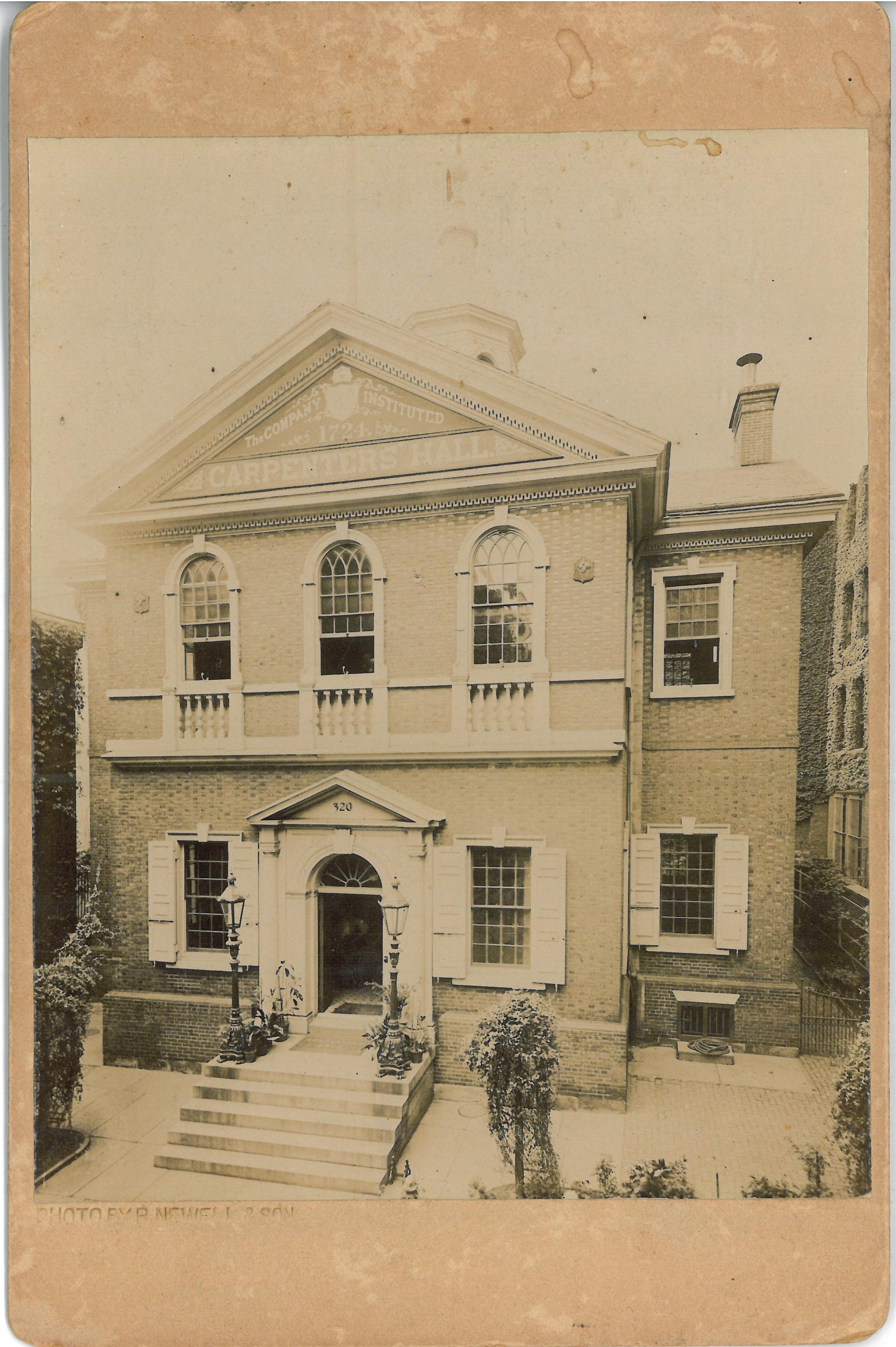Carpenter’s Hall, Philadelphia, ca. 1876
Source: Elihu A. White Papers, #14.11.a (P-14/6)
Staff Person: Jonathan Dembo
Description: This photograph of Carpenter’s Hall, Philadelphia dates from the 1870s. It’s name derives from the fact that it was originally built in 1770-1773 to serve as a meeting hall for the Carpenters’ Companies of the City and County of Philadelphia, the nation’s oldest surviving trade guild. The handwritten caption on the verso of the photograph reads: “Carpenter’s Hall, Philadelphia, Pa. Birthplace of Liberty. Built 1770. The Hall where the first Continental Congress was held Sept. 5 1774”. Located on Chestnut Street it is only a few blocks away from the Pennsylvania State House, better known as Independence Hall. The First Continental Congress, met in Carpenter’s Hall, in September and October of 1774 because the State House was being used by the Colonial Assembly at the time. It was during its sessions, here, that the Congress banned the further importation of slaves and to end the slave trade between the colonies. The Hall later served as a hospital for wounded and sick soldiers, both British and American during the Revolution. Designed by architect Robert Smith (1722-1777), the building is a two-story Georgian style brick structure. It is one of the few building extant in the 1770s that continues to be used for its original purpose. Over the years, Carpenter’s Hall has housed a wide variety of organizations, including Benjamin Franklin’s American Philosophical Society and his Library Company of Philadelphia. It also served as home to both the First and Second Banks of the United States. While open to the public and operated in cooperation with the National Park Service, the building is still in private hands and remains the meeting place for the Carpenter’s Company and other labor organizations. It looks today much as it did in the 1870s and 1770s. Elihu A. White (1824-1900) probably acquired the photograph on a visit to Philadelphia during the 1870s or 1880s. White was a Quaker farmer and business leader from Belvidere, North Carolina. He was also heavily involved in social reform, education, and Republican political activities. He served in a variety of local offices and was a member of the Reconstruction era State Senate 1868-1870. He served as a collector of Internal Revenue during the Rutherford B. Hayes, Benjamin Harrison administrations, 1879-1893. He was a member of the Board of Trustees of the University of North Carolina in the 1890s. Throughout his life White was active in a variety of local, state, and national Temperance and Prohibition organizations, including the Women’s Christian Temperance Union was led the campaign to prohibit the sale of alcohol in the United States.
